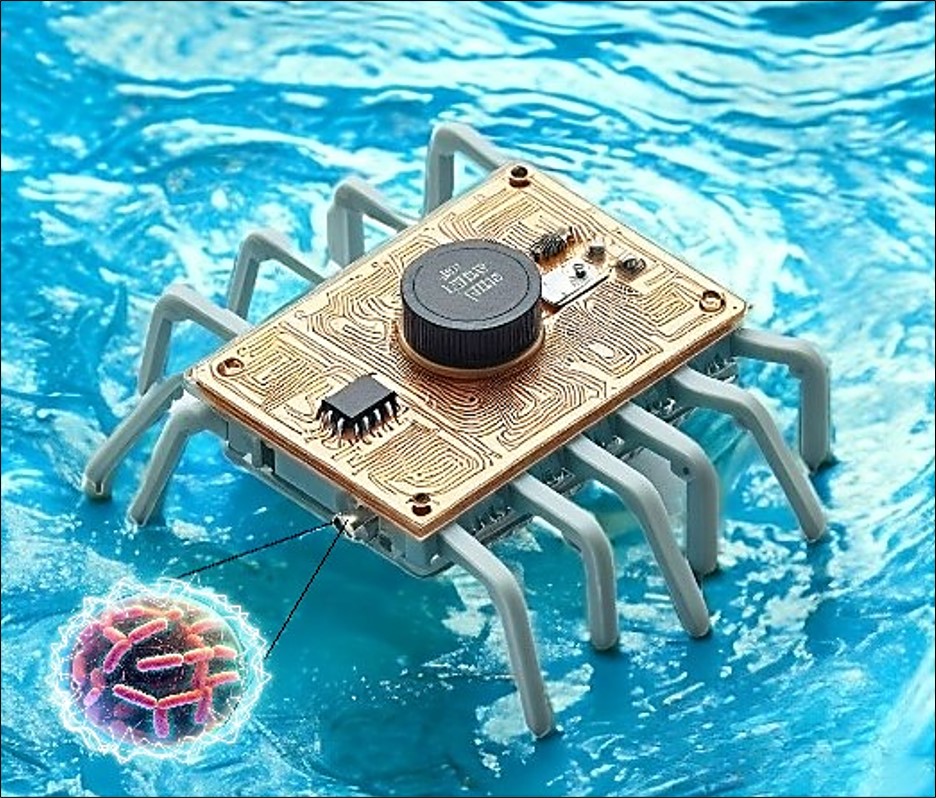|
Self-powered aquatic robots

|
Aquatic
mobile robots are garnering increasing interest for their potential to
transform the landscape of tethered nodes within the Ocean Internet of Things
and to revolutionize methods of monitoring and exploring marine environments.
Achieving self-sustainability for these untethered robots, especially in
inaccessible and remote areas, poses a significant challenge, with energy
autonomy being the foremost obstacle. This work unveils an innovative
self-sustaining energy system for compact aquatic robots, drawing inspiration
from the natural process of biological digestion. By metabolizing organic
materials found in aquatic settings, microbial fuel cell (MFC) technology
transforms organic matter into electricity via catalytic reduction-oxidation
reactions. To enhance the MFC's longevity, this study employs spore-forming
Bacillus subtilis as the anodic biocatalyst. This choice exploits the
bacterium's capability to endure harsh conditions by entering a dormant state
and reactivating in favorable conditions, prolonging the operational life of
the MFC. To ensure a continuous and dependable provision of organic substrates
essential for microbial viability, this research integrates a biomimetic Janus
membrane characterized by asymmetric surface wettability, facilitating
selective intake from the substrate. Moreover, incorporating stability
mechanisms inspired by the water strider enables the aquatic robot to move
efficiently across water surfaces. The robot mimics the water strider's
graceful movement using a motor powered by microbial metabolism, fueled by the
organic nutrients in the aquatic environment via the Janus membrane. This study
demonstrates the feasibility of using natural processes for technological
advancement and sets new benchmarks in the design of autonomous systems.
|

